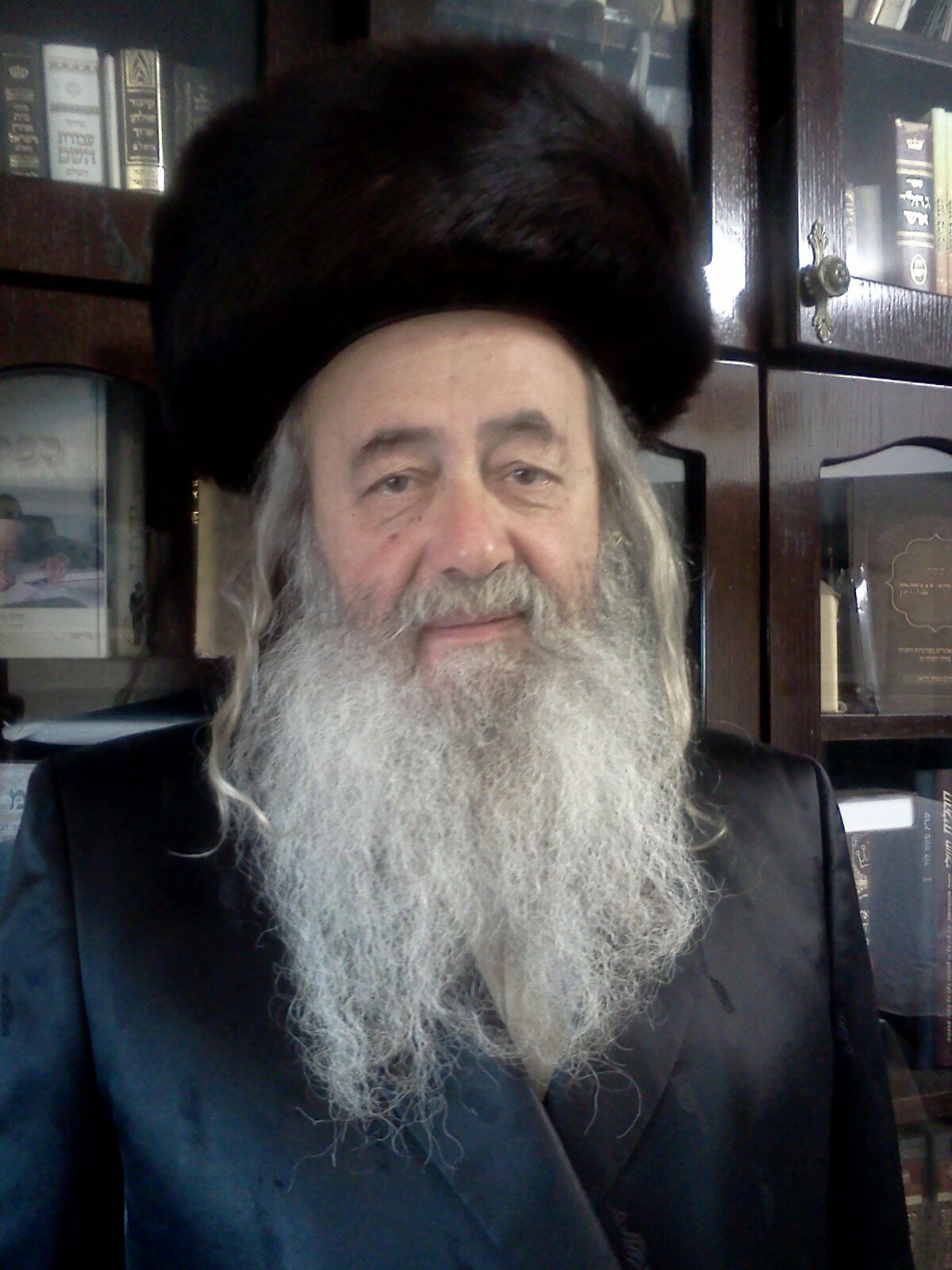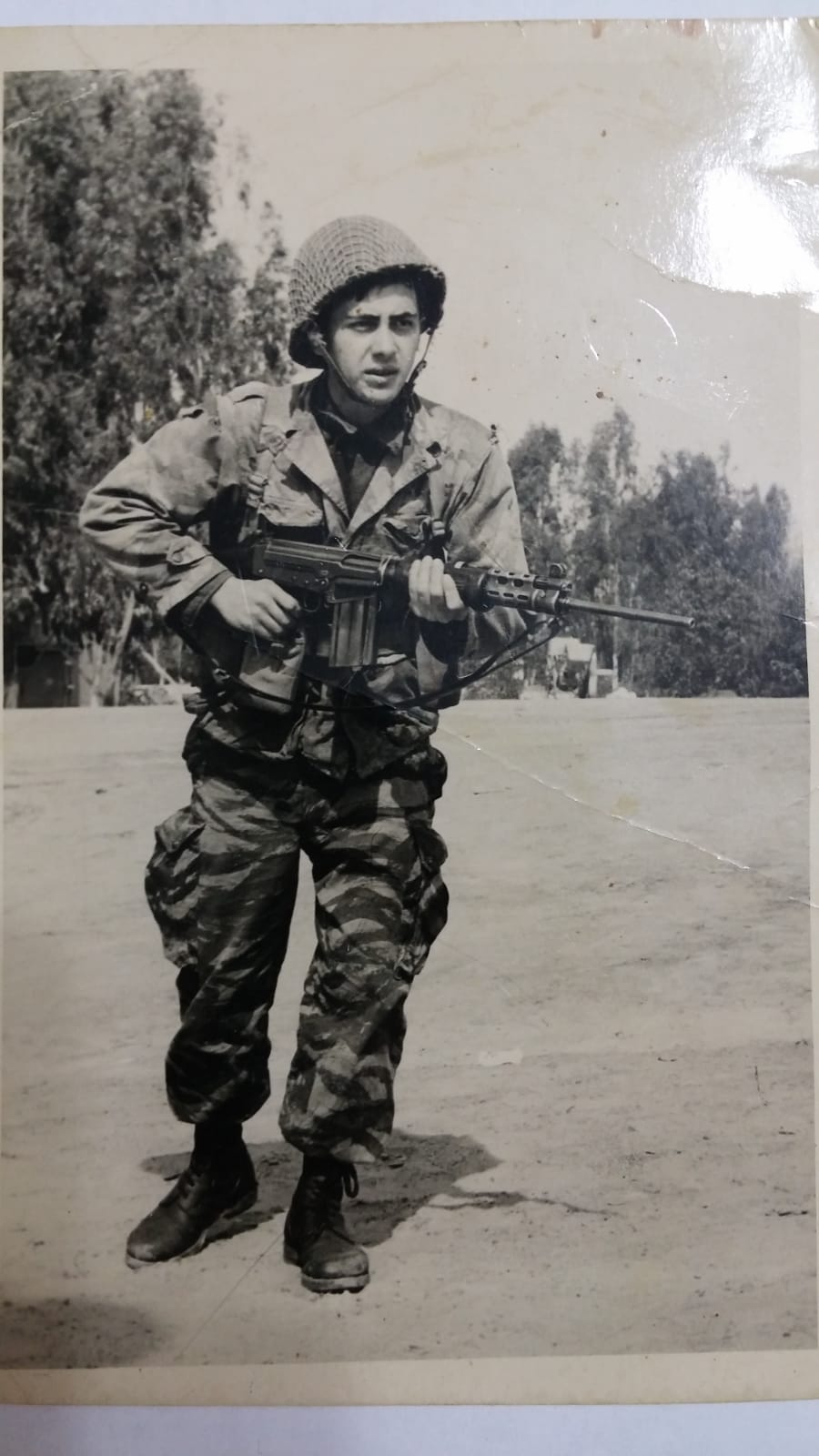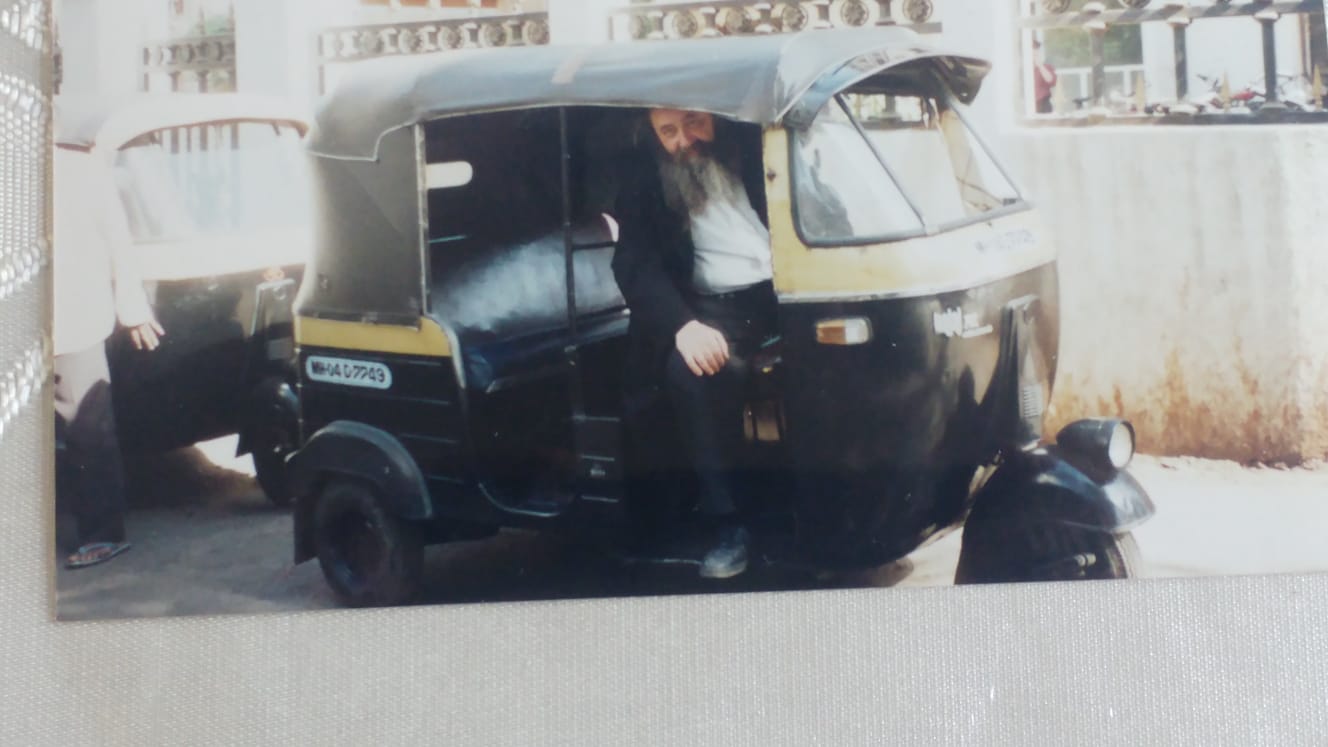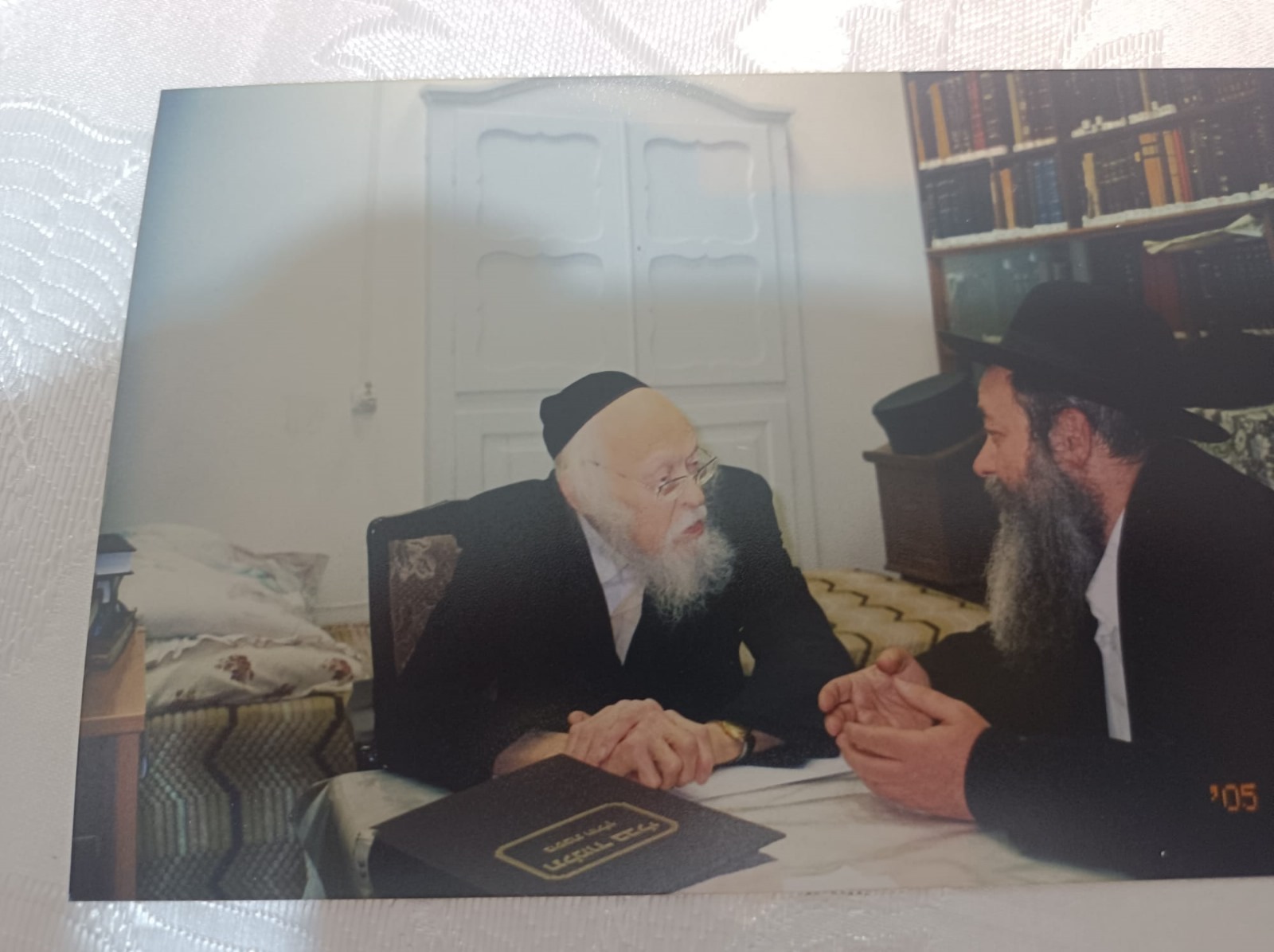The Rav Who Risked It All: Rabbi Yehuda Gordon's Brave Mission to Free Agunot
For most of his life, Rabbi Yehuda Gordon has chased after get refusers whose wives fled to Israel. He infiltrated dangerous places worldwide, dealt with notorious mobsters, and faced KGB agents. In an interview, he shares: "I saw death in the face but was never afraid."
 In the circle: Rabbi Yehuda Gordon (background photo: shutterstock)
In the circle: Rabbi Yehuda Gordon (background photo: shutterstock)Rabbi Yehuda Gordon's heart raced when KGB agents confronted him with drawn weapons, just moments after they caught him planning to cross the border. It wasn't the only time his heart raced wildly. On another occasion, he found himself fighting off two attack dogs charging at him from a dark house, and another time he faced a sharp knife almost drawn against him.
These stories are mere fragments of the puzzle that make up the life of Rabbi Yehuda Gordon, arguably one of the bravest rabbis in Israel. Rabbi Gordon, now 70, has served for over 30 years in the unofficial role of Jerusalem's "liberator of agunot," having freed more than 600 women from marital chains.

Brush with Death at the Uzbek Border
In one of his initial global missions, Rabbi Gordon faced death head-on. This occurred while pursuing a Bukharan get refuser whose wife had fled to Israel, leaving her as an agunah. "At that time, Bukhara was still under Soviet control, embroiled in a brutal war, and entry for Israelis was not permitted," he recalls. "Even the Israeli ambassador in the region told me he only ventured there twice a year, and always with close protection."
The sensitive and complex diplomatic situation led Rabbi Gordon to improvise a creative solution: "I contacted a criminal I knew previously, the head of the area's biggest mafia. I told her about my mission and asked if she would meet with the get refuser and pressure him to meet me at the Uzbek border."
"A few days later, I received a secretive phone call from the get refuser," Rabbi Gordon continues. "He apologized, and we agreed on a day to meet at the border. I arrived on the appointed day, waited and waited, but he never showed."
Rabbi Gordon stood at the base of the tall mountains spanning the border, realizing he had been duped: "I understood I had no choice. I told myself, 'Let's try to cross the border.'"
Did you know that under Uzbek law, the penalty for trespassing is imprisonment in a labor camp?
"I knew. I'll tell you more—I also knew I'd receive a severe beating from the KGB agents, the kind of beating I'd never get in Israel. But I had no choice. Having come this far, I would do whatever it took to complete the task. I realized I needed to bribe someone. So, I handed a substantial sum to the border commander, and in an instant, the gates opened for me."
Rabbi Gordon was preparing to cross, but suddenly the deputy commander rushed over to inform him that the KGB had learned of a foreigner planning to cross the border, and they were now en route. "I fled into a café on the border side and understood that if I wanted to avoid death, I needed to put on an act."
What do you mean by "put on an act"?
"I sat in a chair, cigarette in mouth, feet on the table, and decided to play the game till the end. Moments later, eight KGB agents entered the establishment with weapons drawn. A friend approached them, pointing at me and shouting: 'This man here is a great oligarch and a personal friend of the Uzbek Prime Minister. If you want to approach him, be my guest.' He pulled out his cellphone, showed them the contacts, and continued to shout: 'If I press the button, the call will go directly to the Prime Minister, and by tonight, your ranks will be stripped.' At that moment, he snatched the ranks from their military uniforms, tore them, and threw them on the floor."

Caution, Dog in the House
Throughout his unofficial role as a "liberator of agunot," Rabbi Gordon experienced many miracles. One such occasion was during a daring chase after a Jewish get refuser from the Bene Israel community in India, whose wife had escaped to Israel. "He was a drug addict and alcoholic. I went to his rented room in a neglected alley in Mumbai, and it turned my stomach. His restroom was on the balcony, the smell was awful. I tried to persuade him to grant a get, even offering him a respectable sum of $1,000, but he refused. I told him: 'The Torah states a woman leaves her husband in two ways — by a get or the husband's death. I offered you to give a get, and since you refused, you already have a deal with the Creator.' Two months later, I received testimony that he had passed away."
In another case, Rabbi Gordon found himself flying to Moldova. He needed to meet a local criminal whose wife had fled him to Israel. "It was a very long street," he recounts. "I didn't have an exact address and found myself standing in front of a large block of high buildings. Torrential rain was pouring outside. I climbed the stairs, rang the doorbell, then the door opened. I looked right and left, took one step in, and suddenly the door closed on me. Then, in an instant, another door opened, and two vicious Rottweiler dogs jumped at me. They were standing on their hind legs, their mouths level with my face."

What went through your mind at that moment? Didn't fear paralyze you?
"I wasn't afraid. Perhaps that's what enabled me to do things others wouldn't be able to."
Then, just before the dogs attacked, another door opened, and the landlord walked out. "He laughed a quiet, sinister laugh, then whistled a long, strong whistle to the dogs. I told him humorously: 'You've shown me what you can do, now let me show you what I can do.' I pulled the authorization for a get out of my bag and handed it to him. He read it quietly, then signed it."
You described a difficult person, a "criminal" to put it lightly. How was he convinced so easily?
Rabbi Gordon emphasizes that there was no personal charm involved, and attributes his success to something else entirely: "It was a blessing from Heaven, and of course the blessings of the great rabbis of Israel who accompanied me all along the way."
Accompanying him on the journey were his wife and children. For 25 years, he traveled worldwide, on average once every month and a half, often separating from his family for days and nights, and seeing them only for very short periods. "I couldn't have managed without the support and encouragement from my family," he says.
How did your family and children take it? Wasn't it hard to see them only for short periods?
"That’s a tough question," he replies. "It was a tremendous effort for all of us, not only because of the frequent absences from home but also due to the dangers associated with my role. Honestly, everything was challenging materially too. I would take canned food with me, and that would be my diet all those days abroad. As for the Shabbat meals, I'd warm the challah with a Shabbat candle... I was blessed with a very strong woman, and she is the one who pushed and encouraged me to keep going. Without her support for my complex role, I wouldn't have managed alone."
"There's a Knife in His Right Boot"
When asked at what point in his life Rabbi Gordon understood that his ultimate purpose was to release women trapped in agunot status, he cannot pinpoint an exact moment. "It's not that I suddenly arrived at this mission. My life path has been far from ordinary: I was born in Poland within a small Jewish community surrounded by non-Jews. As I grew up, I traveled to many countries worldwide, studied at Paris's most prestigious university, and also at a college in New York. When I moved to Israel, I befriended Rabbi Yitzchak Zilber zt"l, the rabbi of Russian Jewry in Israel, and he convinced me to take on cases of get refusers. So naturally, I got involved and started traveling and flying around the world. Each trip was for at least ten gittin," he recounts.
Forgive me for asking, but where does the courage come from to involve yourself in such complex cases involving real-life dangers?
"On a spiritual level, Rabbi Zilber always told me: 'You’re on a mission, and a mission for a mitzvah doesn't fear.' The rabbi himself wouldn't stop praying for me from the moment I boarded the plane until I returned home. On a practical level, I always prepared before every outing. If I understood it was a dangerous place, I would contact local law enforcement. Once, I even enlisted the help of the Russian mafia. If I knew the place I needed to visit was particularly dangerous, I'd get in touch with them and pay for their protection during the trip. The mafia boss would send two or three guys to accompany me."

Were there instances where you weren't adequately prepared or faced unexpected challenges?
"Generally, I tried to be as prepared as possible, but indeed, there were instances where I was updated on unforeseen dangers only after arriving. A particular case I remember vividly was when I went to retrieve a get from a very dangerous criminal. He wore high boots, and inside the right boot was a knife. I knew this but didn’t know how to avoid encountering the knife. Then, at the last moment, someone whispered in my ear that when this criminal starts stuttering, it's a sign the knife is coming towards you.
"I met him, started a conversation, but within minutes he began to stutter. I immediately pulled out a cigarette, offered it to him, and said: ‘Let's step outside to get some air.' Do you know what happened in the end? After eight hours of 'getting some air,' he agreed to sign the get authorization..."
"It Was a High-Risk Mission. I Might Not Have Made It Out"
Even when encountering unexpected challenges at the last minute, Rabbi Gordon never gave up. "I traveled to a get refuser living in a decrepit worker's building in a Ukrainian city. It was the scariest building I've ever visited. I arrived at two in the morning, and despite the late hour, twenty bulky workers stood in the entrance courtyard drinking vodka. They looked at me in shock, not comprehending my courage...
"It was a nine-story building. I started climbing the stairs, and on every floor, I came across a different crime scene. When I knocked on the door of that person, he couldn't believe I dared enter his building at this late hour. He told me, 'I myself don't step out into the staircase after six in the evening.' In this instance," concludes Rabbi Gordon, "I took an extremely high risk. I might not have made it out."

